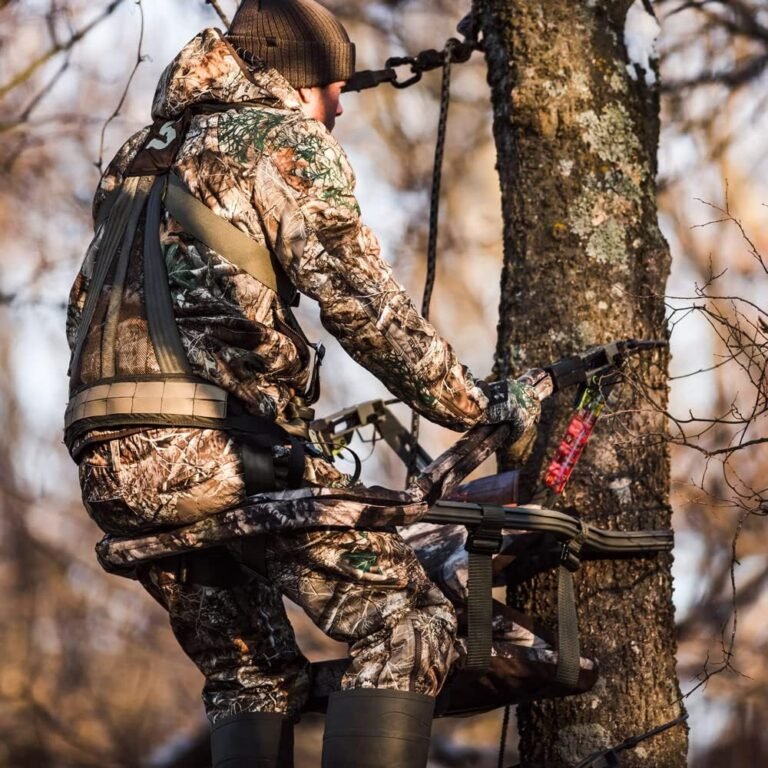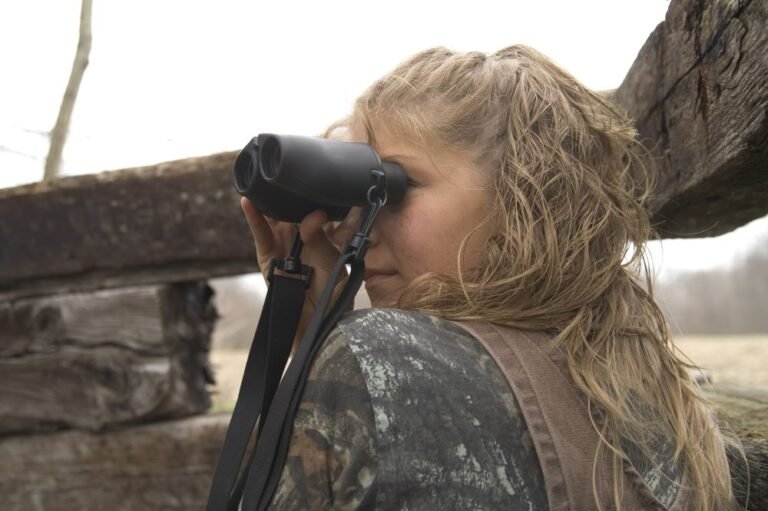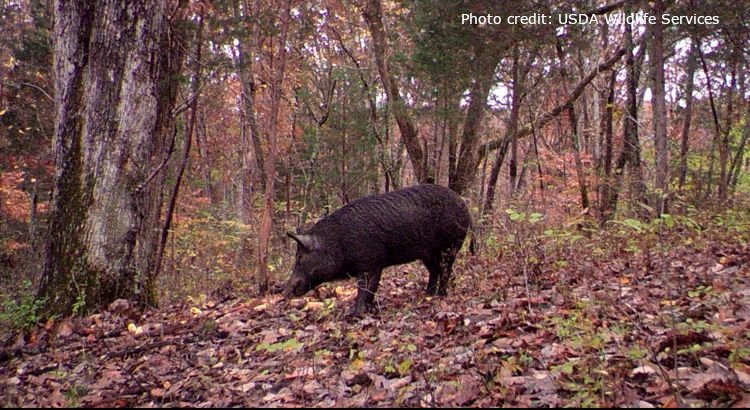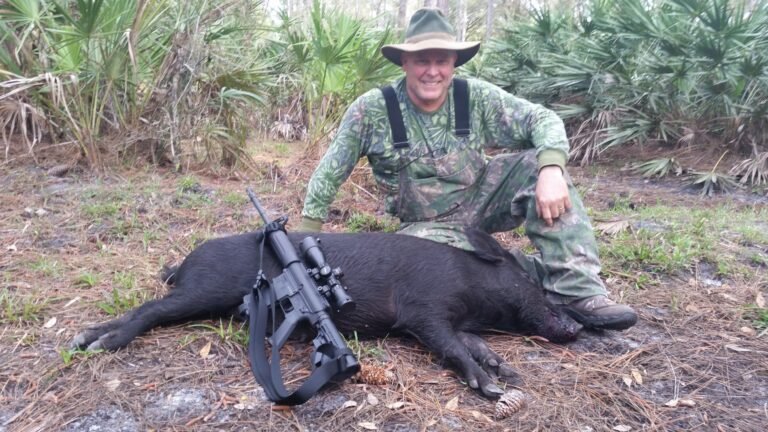Tennessee’s Hog Hunting: What You Need to Know
With its vast wilderness and abundant wildlife, Tennessee hog hunting has emerged as a beloved destination for outdoor enthusiasts and avid hunters alike. Among the myriad of hunting opportunities available in the state, hog hunting stands out as a thrilling adventure that has captured the hearts of many. Whether you are a seasoned hunter seeking new challenges or an adrenaline-seeking novice looking for an unforgettable experience, hog hunting in Tennessee offers both excitement and fulfillment.
Wild hogs, descendants of domesticated pigs gone feral, have become a significant presence across the state. These resilient creatures possess adaptability and intelligence that make them a formidable quarry.
As hog populations continue to grow at an alarming rate, their impact on the environment cannot be ignored. This leads us to the next vital aspect: managing the wild hog population.
Managing the Wild Hog Population In the State
While it’s undeniable that hog hunting provides hunters with an immersive experience in nature, it also serves an essential purpose: controlling and managing the exploding numbers of wild hogs in Tennessee. Wild hogs can cause significant damage to agricultural crops, disrupt ecosystems by uprooting vegetation in search of food, and even pose threats to native wildlife species.
The sheer destructive power these animals possess is reason enough for conservationists and landowners to actively seek measures to curb their population growth. By participating in regulated hunts targeting wild hogs, hunters play a crucial role in maintaining ecological balance while simultaneously enjoying their time outdoors.
In addition to mitigating ecological concerns, hog hunting contributes significantly to local economies through tourism revenue and employment opportunities related to outfitters, guides, rental equipment businesses, and other related services. Therefore, understanding why managing wild hogs is necessary allows us to appreciate not only its environmental significance but also its economic impact.
So, whether you are a hunter, a conservationist, or someone who wants to experience the thrill of the chase firsthand, hog hunting in Tennessee offers an incredible opportunity to participate in an activity that combines adventure with ecological responsibility. Join us as we delve deeper into the world of Tennessee hog hunting, exploring its rich history, popular hunting locations, techniques utilized by hunters, and essential gear required for a successful hunt.
Understanding Wild Hogs in Tennessee
Tennessee, like many other states, has a fascinating history when it comes to wild hogs. These intelligent and adaptable creatures were not native to the area but were introduced by European settlers centuries ago. Initially brought for food and domestic purposes, some hogs escaped or were released into the wild.
Over time, they thrived in the diverse landscapes that Tennessee offers — from dense forests to rolling hills and even swamps. Today, their populations have expanded significantly, making them a target for hunters seeking exciting adventures in the great outdoors.
Physical Characteristics and Behavior of Wild Hogs
When it comes to describing wild hogs found in Tennessee, one word comes to mind: formidable. These creatures possess a muscular build with stocky bodies covered in coarse bristly hair that can range from black and gray to reddish-brown.
On average, adult males (boars) can weigh anywhere between 200 to 400 pounds, while females (sows) generally weigh slightly less at about 150 to 250 pounds. Their physical strength is just one aspect of what makes hunting them an exhilarating challenge.
Wild hogs are known for their keen senses – particularly their acute sense of smell – which allows them to detect potential threats from long distances. They are also highly intelligent animals with an inherent wariness that has helped them adapt and survive over generations.
Description of Their Size, Weight, and Appearance
In terms of size and weight variations among wild hogs found in Tennessee hunting grounds (such as those popular spots like Catoosa Wildlife Management Area or Land Between the Lakes National Recreation Area), there is quite a bit of diversity amongst individuals. The average height at the shoulder is usually around 28-32 inches for males and slightly shorter for females. As mentioned earlier, boars tend to be larger than sows, with some exceptional specimens weighing over 500 pounds in rare cases.
However, most hogs fall within the aforementioned weight ranges. Their physical appearance is dominated by strong shoulders, a distinct snout, sharp tusks that can grow several inches long, and muscular frames built for survival in the wild.
Insight into Their Social Structure and Feeding Habits
Wild hogs are typically social animals but do not form large cohesive groups like some other wildlife species. Instead, they tend to gather in smaller family units called sounders. A sounder consists of a dominant sow and her offspring of varying ages.
However, adult males often lead solitary lives or join temporary groups during mating seasons. When it comes to food preferences, wild hogs are opportunistic omnivores with an exceptionally diverse diet.
They are known to forage on various types of vegetation like acorns and roots while also scavenging for insects, reptiles, small mammals, and even the occasional carrion. These adaptive feeding habits contribute to their ability to thrive in Tennessee’s diverse ecosystems.
Overall, understanding the origin, physical characteristics, behavior patterns such as their social structure and feeding habits of wild hogs is crucial for hunters looking to embark on an unforgettable Tennessee hog hunting adventure. Familiarizing oneself with these remarkable creatures adds depth to the experience while heightening the thrill of pursuing them amidst Tennessee’s breathtaking landscapes
Popular Hog Hunting Locations in Tennessee
Well-known hunting areas such as Catoosa Wildlife Management Area and Land Between the Lakes National Recreation Area
When it comes to hog hunting in Tennessee, there are a few hotspots that stand out from the rest. One of these is the Catoosa Wildlife Management Area, located in Cumberland County. This vast public land offers hunters an incredible opportunity to pursue wild hogs amidst its diverse terrain.
With over 80,000 acres of rugged forests and open fields, Catoosa provides ample space for hunters to test their skills and track down these elusive animals. Another renowned area for hog hunting is the Land Between the Lakes National Recreation Area.
Situated along the Kentucky-Tennessee border, this expansive region spans over 170,000 acres of prime hog-hunting territory. From dense woodlands to wetlands teeming with wildlife, this area offers a varied landscape where hunters can find plenty of opportunities to bag some hogs.
Highlighting diverse terrains available for hog hunting, including forests, swamps, and agricultural fields
Tennessee’s hog hunting locations boast an impressive array of terrains that cater to different hunting preferences. For those who enjoy stalking through dense forests in pursuit of their prey, places like Catoosa Wildlife Management Area provide ample cover and challenging conditions. The thrill of navigating through thick foliage while keeping a keen eye out for signs of wild hogs adds an extra layer of excitement to the hunt.
On the other hand, if you prefer swamps and marshy areas as your battlefield against these tusked creatures, Tennessee has got you covered too! The state boasts several wetland regions where hogs thrive due to abundant water sources and natural food supplies.
These swampy environments require a different approach with careful footing on treacherous terrain but offer excellent opportunities for close encounters with hogs. Agricultural fields provide another type of hunting experience in Tennessee.
Hogs are known to be attracted to crop fields where they can easily find food. Hunting in these open spaces requires patience and strategy, as you’ll need to anticipate their movements and set up in strategic locations to intercept them.
The thrill of stalking through open fields, hidden amongst bales of hay or using natural terrain features for cover, adds an element of excitement that is unique to this type of hunting. Tennessee hog hunting offers a variety of locations and terrains that cater to every hunter’s preference.
Whether you’re prowling through dense forests, navigating treacherous swamps, or setting up ambushes in agricultural fields, the state’s diverse landscapes ensure a thrilling and rewarding hunting experience. So grab your gear and head out to one of these popular hog hunting spots for an unforgettable adventure in the heartland of wild hogs!
Hunting Techniques for Wild Hogs in Tennessee
Spot-and-Stalk Technique: Pursuing Hogs on Foot or Vehicle
When it comes to hunting wild hogs in Tennessee, one popular technique that hunters employ is the spot-and-stalk method. This involves actively searching for hogs on foot or from a vehicle and then stealthily closing the distance for a clean shot.
With the vast landscapes and diverse terrains found in Tennessee, this technique allows hunters to explore different areas where hogs are known to roam. Whether you’re trudging through dense forests or creeping along open fields, the spot-and-stalk technique keeps you engaged and alert, as you never know when you might stumble upon one of these elusive creatures.
Stand Hunting: Elevated Positions and Concealment
Another effective technique employed by hog hunters in Tennessee is stand hunting. This method involves setting up in an elevated position such as a tree stand or ground blind and waiting patiently for hogs to pass by within range. By positioning themselves above ground level, hunters gain a vantage point that provides clearer sightlines and minimizes their scent being detected by the keen noses of wild hogs.
Stand hunting is particularly advantageous when hunting areas with high hog activity or near feeding sites such as cornfields or acorn-laden oak groves. It requires patience and stillness, but the reward of a successful shot makes it all worthwhile.
Use of Dogs: Tracking and Cornering Hogs
In addition to the aforementioned techniques, many hog hunters in Tennessee rely on canine companions to aid them in tracking down and cornering wild hogs. Highly trained dogs with strong scent detection abilities can pick up the trail of hogs, leading their human counterparts right to them.
Once close enough, these dogs engage the hogs by barking loudly, distracting them, and keeping them at bay, allowing hunters to move in for a successful capture or elimination. This method is well-suited for areas with thick vegetation where visibility is limited, as the dogs can navigate through dense brush with ease.
The use of dogs adds an extra level of excitement and teamwork to the hunting experience, forming a strong bond between hunters and their trusty four-legged companions. Tennessee hog hunting offers a range of techniques that cater to different hunting preferences.
Whether you prefer an active pursuit on foot or vehicle, patiently waiting from an elevated position, or relying on the assistance of skilled tracking dogs, there’s something for every hunter in the diverse landscapes of Tennessee. These techniques not only maximize your chances of a successful hunt but also provide unforgettable experiences amidst the beauty of this great state’s wilderness.

Firearms and Equipment Used in Hog Hunting
Discussion on suitable firearms for hog hunting
When it comes to hog hunting in Tennessee, choosing the right firearm is crucial. Two popular options for hog hunters are rifles and shotguns.
The AR-15 rifle is a favored choice due to its versatility and accuracy. Its semi-automatic action allows for quick follow-up shots, while its lightweight design makes it easy to maneuver in dense forests or fields.
Another commonly used rifle is the .308 Winchester, renowned for its stopping power and long-range capability. On the shotgun side, many hunters opt for a 12-gauge with slugs that effectively deliver potent impact to take down hogs.
Explanation of essential gear required for a successful hunt
Equipping yourself with the right gear can significantly enhance your hunting experience in Tennessee. Camouflage clothing is essential to blend seamlessly into the natural surroundings, increasing your chances of getting close to hogs without being detected.
Choose patterns that match the terrain you’ll be hunting in—woodland camo for forests or marshland camo for swamps and wetlands. Sturdy boots are also vital as they support and traction and protect your feet from rough terrains.
Additionally, investing in accessories like gloves, face masks, and hats can aid in minimizing scent dispersal and further concealment. Carrying quality knives during a hog hunt is imperative for field dressing and safety purposes.
A sharp knife with a sturdy fixed blade allows you to efficiently skin and butcher your harvested hogs without struggling with dull edges or flimsy folding mechanisms. Game bags are another essential item as they provide a convenient way of carrying your harvested hogs out of the woods while keeping them clean and protected from dirt or debris.
Field dressing kits are highly recommended as they contain various tools specifically designed for processing games in the field. These kits typically include gutting knives, bone saws, and latex gloves.
A well-equipped field dressing kit ensures that you can efficiently clean and prepare your harvested hogs right after the hunt, preserving the quality of the meat. By selecting appropriate firearms and gathering essential gear for hog hunting in Tennessee, you equip yourself with the tools necessary to maximize your chances of success while ensuring a safe and enjoyable hunting experience in this beautiful state.
Hunting Regulations and Licensing Requirements in Tennessee
Insight into licensing procedures
Regarding hog hunting in Tennessee, it’s important to know the licensing requirements before embarking on your adventure. Tennessee requires all hunters to possess a valid hunting license, which can be obtained through the Tennessee Wildlife Resources Agency (TWRA). To hunt wild hogs specifically, you must purchase a big game license.
Additionally, hunters should familiarize themselves with specific regulations regarding bag limits, hunting seasons, and any additional permits that may be required based on the area they plan to hunt. It is crucial always to follow these regulations and obtain the appropriate licenses before heading out into the wilderness.
Conclusion
Tennessee offers an abundance of opportunities for hog hunting enthusiasts. With its diverse landscapes and plentiful wild hog populations, this southern state has become one of the top choices for avid hunters seeking thrilling adventures.
From the dense forests of Catoosa Wildlife Management Area to the expansive fields of Land Between the Lakes National Recreation Area, plenty of Tennessee hog hunting hotspots are waiting to be explored. Remember to adhere to all licensing requirements and hunting regulations set forth by TWRA while enjoying your time in this beautiful state.
So get out with your gear and embark on an unforgettable hog hunting experience in Tennessee! Happy hunting!





